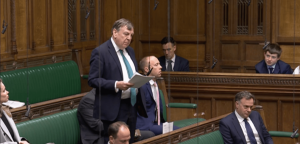The Government is committed to supporting, funding, and accelerating cutting edge technologies that allow animal use to be replaced or avoided. UK Research and Innovation (UKRI) provides core funding to the National Centre of the 3Rs (NC3Rs) which works nationally and internationally to drive the uptake of 3Rs technologies and ensure that advances in the 3Rs are reflected in policy, practice and regulations on animal research. The NC3Rs has annual funding of around £10million.
However, it remains that for now, scientific research using animals plays a vital part in our understanding of how biological systems work in health and disease. The use of animals in science supports the development of new medicines and cutting-edge medical technologies, for humans and animals, and the safety and sustainability of our environment.
Animal testing is required by all global medicines regulators, including the UK’s Medicines and Healthcare products Regulatory Agency (MHRA), to protect human health and safety. Without the testing of potential medicines on animals the development, registration and marketing of new, safe, and effective medicines would not be possible. Many products which would unsafe or ineffective in humans are detected through animal testing thus avoiding harm to humans.
However, the number of procedures involving animals has fallen year-on-year since 2015. The figures in your email are not correct as around half of the reported experiments were the breeding of animals rather than subjecting them to procedures. Experimental procedures involve using animals in scientific studies for purposes such as: basic research and the development of treatments, safety testing of pharmaceuticals and other substances, specific training and education, environmental research and species protection. 1.44 million experimental procedures were conducted in 2020. This means that total reported experimental procedures are 34 per cent down from 10 years ago and 96 per cent of all experimental procedures were assessed as sub-threshold, mild, non-recovery or moderate in severity.


